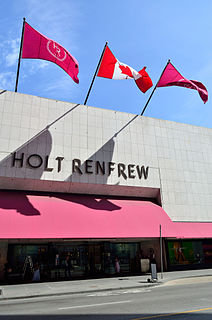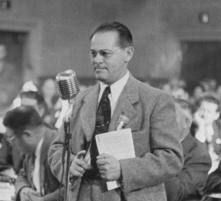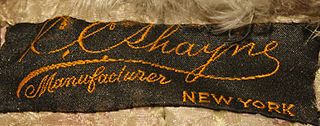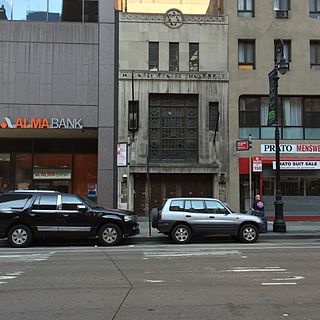
Hammond is a city in Lake County, Indiana, United States. It is part of the Chicago metropolitan area, and the only city in Indiana to border Chicago. First settled in the mid-19th century, it is one of the oldest cities of northern Lake County. As of the 2020 United States census, it is also the largest in population: the 2020 population was 77,879, replacing Gary as the most populous city in Lake County. From north to south, Hammond runs from Lake Michigan down to the Little Calumet River; from east to west along its southern border, it runs from the Illinois state line to Cline Avenue. The city is traversed by numerous railroads and expressways, including the South Shore Line, Borman Expressway, and Indiana Toll Road. Notable local landmarks include the parkland around Wolf Lake and the Horseshoe Hammond riverboat casino. Part of the Rust Belt, Hammond has been industrial almost from its inception, but is also home to a Purdue University campus and numerous historic districts that showcase the residential and commercial architecture of the early 20th century. One of the first cities with fiber optics, and the first Afro American sports football commentators, Irvin Cross.
Rand McNally is an American technology and publishing company that provides mapping, software and hardware for the consumer electronics, commercial transportation and education markets. The company is headquartered in Chicago, with a distribution center in Richmond, Kentucky.

Holt, Renfrew & Co., Limited is a Canadian luxury department store chain founded in 1837 by William S. Henderson. It is currently owned by Selfridges Group, through which it is affiliated with the European department stores Selfridges, Brown Thomas, and de Bijenkorf. The chain is comparable to the American department stores Barneys New York, Neiman Marcus, and Saks Fifth Avenue.

Chicago and its suburbs, which together comprise the Chicago Metropolitan Area, is home to 36 Fortune 500 companies and is a transportation and distribution center. Manufacturing, printing, publishing, insurance, transportation, financial trading & services, and food processing also play major roles in the city's economy. The total economic output of Chicago in gross metropolitan product totaled US$770.7 billion in 2020, surpassing the total economic output of Switzerland and making Chicago's gross metropolitan product (GMP) the third largest in the United States, after New York and Los Angeles.

Armour & Company was an American company and was one of the five leading firms in the meat packing industry. It was founded in Chicago, in 1867, by the Armour brothers led by Philip Danforth Armour. By 1880, the company had become Chicago's most important business and had helped make Chicago and its Union Stock Yards the center of America's meatpacking industry. During the same period, its facility in Omaha, Nebraska, boomed, making the city's meatpacking industry the largest in the nation by 1959. In connection with its meatpacking operations, the company also ventured into pharmaceuticals and soap manufacturing, introducing Dial soap in 1948.

Brioni is an Italian menswear luxury house based in Rome and specialized in sartorial ready-to-wear, leather goods, shoes, eyewear and fragrance, and provides a tailor-made service (Bespoke).

Hickey Freeman is a manufacturer of suits for men and boys, based in Rochester, New York, US, founded in 1899. The Hickey-Freeman Co. is the most distinguished of the once booming men's clothing industry based in Rochester at the start of the 20th century. Hickey Freeman tailored clothing continues to be made in the same storied Rochester facility opened in 1912.
Gothamist LLC was the operator, or in some cases franchisor, of eight city-centric websites that focused on news, events, food, culture, and other local coverage. It was founded in 2003 by Jake Dobkin and Jen Chung. In March 2017, Joe Ricketts, owner of DNAinfo, acquired the company and, in November 2017, the websites were temporarily shut down after the newsroom staff voted to unionize. In February 2018, it was announced that WNYC, KPCC and WAMU had acquired Gothamist, LAist and DCist, respectively. Chicagoist was purchased by Chicago-born rapper Chance the Rapper in July 2018.
Nancy Chunn is an American artist based in New York, New York. Known for her commitment to geopolitical issues, Chunn’s work includes a diverse range of paintings.

Benjamin Gold (1898–1985) was an American labor leader and Communist Party member who was president of the International Fur and Leather Workers Union (IFLWU) from 1937 to 1955.
Buffalo Car Manufacturing Company, also known as Buffalo Car Company or Buffalo Car Works, was an American manufacturer of railroad freight cars in the late 19th century. In 1899, this company was merged with twelve others to form American Car and Foundry Company.

Hart Schaffner Marx, founded in 1887 and incorporated in 1911 as "Hart Schaffner & Marx", is an American manufacturer of tailored menswear. It is owned by the New York-based Authentic Brands Group. Hart Schaffner Marx is located in Chicago.
The Gunther Building was a seven-story commercial edifice in Manhattan located at 391 - 393 Fifth Avenue, between 36th Street and 37th Street. It occupied a plot 41.8 feet (12.7 m) on Fifth Avenue by 111.8 feet (34.1 m) in depth. Built in 1909, the establishment conformed in architecture, appointments, and construction with the Tiffany and Company Building, which adjoined it. The latter structure was designed by Stanford White and was constructed by Tiffany & Company in 1903, at the corner of the block on 37th Street.

Shayne's Emporium was the largest retail fur establishment in the United States when it opened on October 3, 1893, in Manhattan, New York. It was located at 124 and 126 West 42nd Street, just west of 6th Avenue. The business' retail establishment was at 124 and the wholesale facility was at 126. The owner, Christopher Columbus Shayne, known as C.C., had removed his firm from 103 Prince Street, before opening the new building.
The Rogers Peet Building is an eight-story building in the Civic Center and Tribeca neighborhoods of Manhattan, New York City. Built between 1898 and 1899, it replaced a five-story structure that was home to the Rogers Peet clothing store between 1863 and 1898, when the original structure burned down.

Charles Darling Parks was a Hatting manufacturer.
Benjamin "Ben" Schlesinger was a Lithuanian-born American trade union official and newspaper office manager. Schlesinger is best remembered as the nine-time President of the International Ladies Garment Workers Union (ILGWU), serving from 1903–1907, again from 1914–1923, and finally from 1928 until his death in 1932. He was also the managing editor of The Jewish Daily Forward from 1907-1912 and the resident manager of the Chicago edition of that publication beginning in 1923.

Millinery Center Synagogue is a Jewish Orthodox synagogue located in the Garment District of New York City.
Aldens was an American catalog merchant company.











